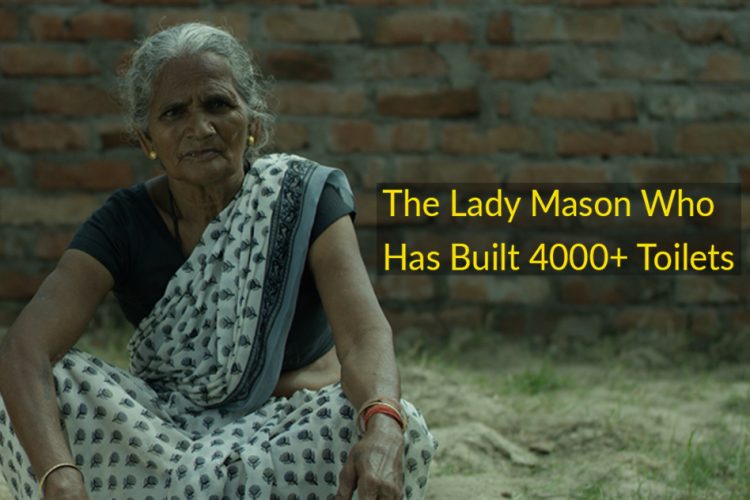There was a time when there was not a single toilet for 700 families inhabiting the Raja Ka Purwa slum in Kanpur. People were compelled to relieve themselves anywhere and everywhere possible, creating a scenario which surpasses the worst threshold of unhygienic.
“If someone wanted to paint a picture of hell, the earlier condition of our slum in Kanpur would have perfectly fit the description,” exclaims Kalavati Devi, a 57-year-old resident of the place. She took it solely upon herself to transform the inhuman living conditions in the area, plagued by the menace of open defecation. A mason by profession, the widowed mother of two have constructed over 4000 toilets in UP villages in and around Kanpur, in the last five years.
At the age of thirteen, Kalavati first arrived in Kanpur as a child bride to her eighteen-year-old husband Jairaj and dedicated her life ever since to run the household and bring up her children. However, a financial crisis in the family prompted the doting mother to don the strength of a daily labourer and take up the tools of a mason.
Disgusted by the filth all around, Kalavati resolved to build a community toilet in Raja Ka Purwa slums. With unwavering support from her husband, she approached a local rural-based NGO to help her install the same. Challenges were aplenty, especially, raising awareness among the community was a daunting task. Yet, the feisty lady did not flinch an inch from her determination.
The absence of toilets can bring forth hundreds of complications which most of the urban population is unaware of. Contagious diseases were regular among people of all ages, incurring a heavy burden of medical expenses on these daily wage-earning families. “You would find someone sick in each family almost always,” shares Kalavati Devi. Children had poor immunity and their growth displayed a downslide. Women were the worst suffering lot, having to sacrifice their dignity every single day. Needless to mention, the situation during the rainy season would be deplorable.
Kalavati was no one to step aside. She went door to door, explaining how a toilet is indispensable and pleaded with everyone to install the same in their homes. She organised meetings in the villages, spreading the message far and wide. Even after people changed their age-old stand on open defecation, most were unwilling to contribute any money or donate a small plot of land for toilet construction, primarily fearing the credibility. Many also doubted the authenticity of the supporting NGO. Day after day, Kalavati Devi continued her convincing efforts, until everyone came around. The success of her first campaign only propelled the sanitation movement across the remote villages. Today, her perseverance shines brightly through the thousands of lives she has impacted.
While supervising and assisting the toilet construction work, Kalavati realised her true purpose in becoming a mason. Even at the doorstep of the official retirement age, Kalavati Devi knows no stop. “I do whatever is possible and I will keep doing it,” – determination reverberates in each of her words. She wishes more women and youth come forward to participate in such social endeavours which can change many lives. “After all, only a torch can light another torch,” she asserts.
Taking note of her unparalleled contribution to the society, Neurobion Forte has recognised Kalavati Devi as a true hero and wishes to popularise her work through their #HelpingTrueHeroes initiative. Helping True Heroes initiative was started by Neurobion Forte couple of years back to help unsung heroes who work tirelessly for their families and society without expressing their own sufferings.
Article Credit: Logical Indian

